History of the business
Aircraft
engine
Since the start of our jet engine overhauling in our aircraft engine business, we have been engaged in the domestication of helicopter engine production, participating in international collaborative development of jet engines for commercial passenger aircraft, and developing technology to improve energy efficiency and reduce environmental impact.
-
1940/ Showa 15
Birth of Akashi Works
Kawasaki Aircraft Co., Ltd. opened Akashi Works to establish a large-scale mass production system for aircraft. Manufacture of aircraft (airframes/engines) started at Akashi Works, and the first aircraft was completed the following year.
-
1943/ Showa 18
Research and prototype development of auxiliary jet engines Ne-0 to Ne-4
Our company started research and development of prototypes of turbo jet engines at the country’s request. We started manufacture of the Ramjet Ne-0, and succeeded in Japan's first flight test.
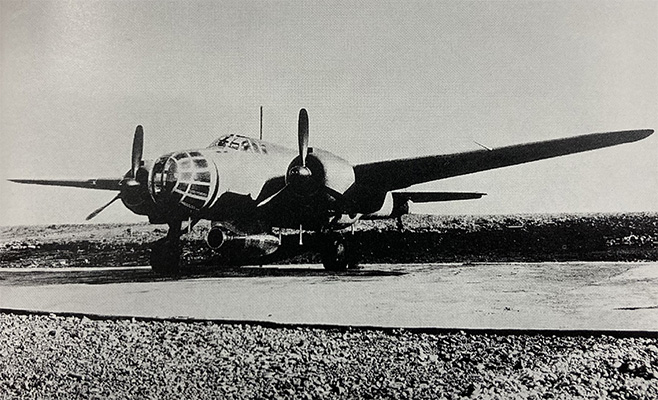
Ne-0 onboard the Ki-48 twin-engine bomber
-
1945/ Showa 20
Ban on aircraft production due to the end of the war
Akashi Works suffered devastating damage in repeated air raids.
We were also forced to convert to being a civilian industry due to the end of the war. -
1952/ Showa 27
Restarting of Kawasaki Aircraft Co., Ltd.
The prohibition on the production of aircraft was lifted when the Treaty of Peace with Japan became effective. Focused on the potential of helicopters, Kawasaki entered a technical tie-up with Bell Aircraft Corporation (U.S.) and commenced manufacture of the Bell 47D helicopter (transferring responsibility to Gifu Works in 1964).
-
1954/ Showa 29
Height of overhauling business
We started the jet engine overhaul business for the U.S. Far East Air Force, and handled the overhaul of 5100 units over ten years.
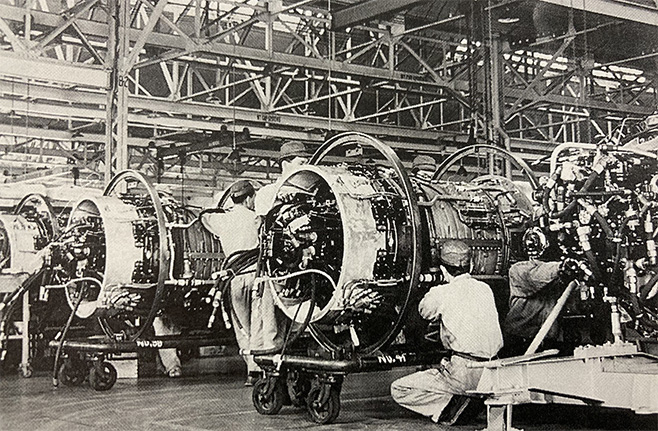
Jet engine overhaul work
-
1962/ Showa 37
Delivery of first overhauled J80506 (T-1A training jet) through a technical tie-up with Rolls-Royce (U.K.)
-
1967/ Showa 42
Delivery of first T53-11A (for the UH-1 helicopter) to the Japan Defense Agency through a technical tie-up with Lycoming (U.S.)
Based on the technology gained from overhaul work, we were able to realize our long-held dream of manufacturing aircraft engines.
-
1983/ Showa 58
International joint development of jet engines
Through the collaboration of five countries, development was commenced on the V2500 turbofan engine for the Airbus A320 family.
-
1985/ Showa 60
Participation in PW4000 project developed by P&W and starting production of those parts
We started manufacture of PW4000 turbofan engine parts.
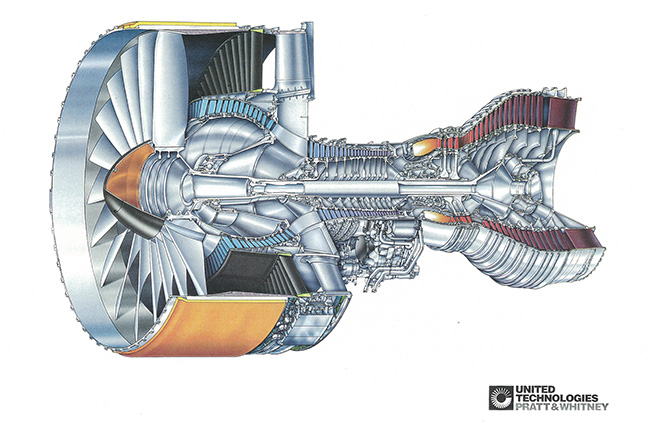
PW4000
-
1986/ Showa 61
Delivery of first T55-K-712 (for the CH-47 helicopter) to the Japan Defense Agency through a technical tie-up with Avco-Lycoming (U.S.)
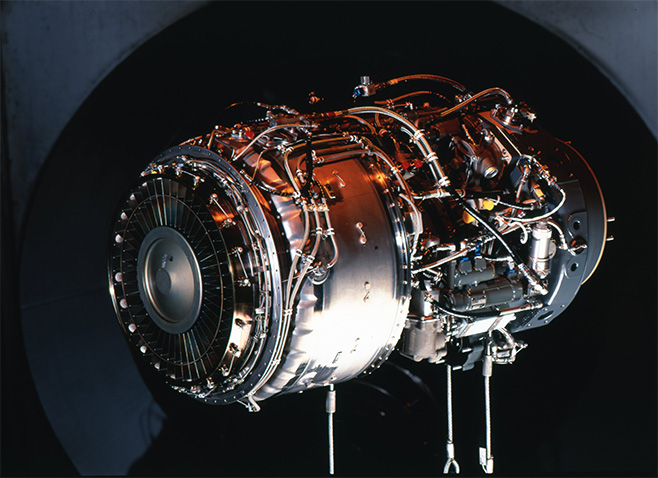
T55-K-712
-
1988/ Showa 63
Participation in development of engines for large aircraft
Component manufacture was commenced as a partner with Rolls-Royce (U.K.) on the joint development of the RB211 and Trent series.
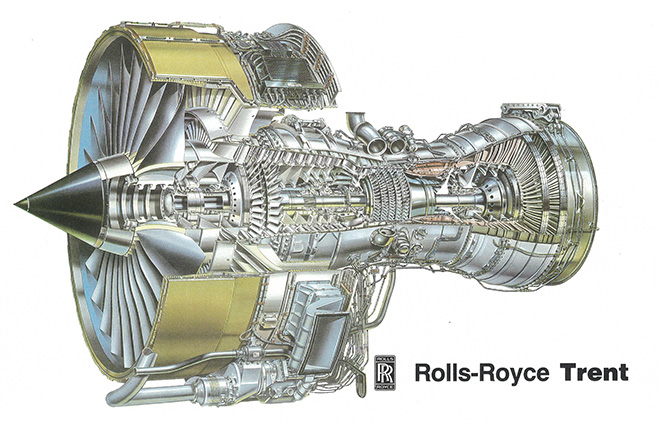
RB211/Trent
-
1990/ Heisei 2
Completion of Seishin Works
Seishin Works was equipped with cutting-edge, high-precision processing technology and automation technology to improve productivity in response to international competition.
-
1996/ Heisei 8
Development begins on CF34 turbofan engine
-
2000/ Heisei 12
Completion of one of Japan’s largest jet engine test cells (thrust force of 100,000 lb)
-
2002/ Heisei 14
First compressed air generation unit (BLC system) for the US-1A Kai search-and-rescue amphibious aircraft delivered to Japan Defense Agency
This system enabled search-and-rescue amphibious aircraft to make takeoffs and landings on rough seas at slow speeds, as required by amphibious aircraft.
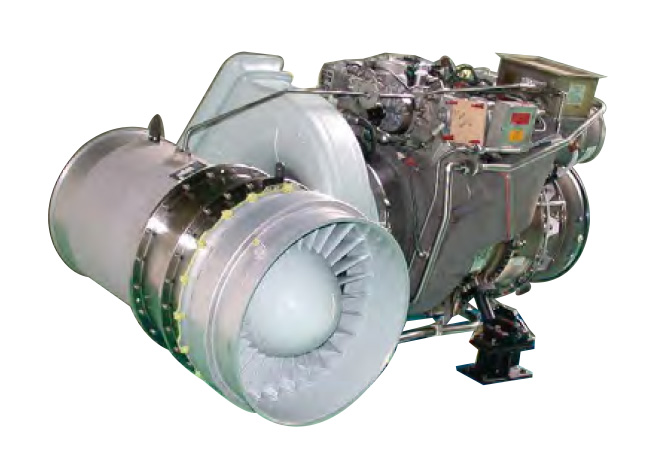
BLC system
-
2004/ Heisei 16
Kawasaki’s participation in the development and production of the Trent 1000 engine for passenger aircraft by Rolls-Royce, including design, and engine development and operation work.
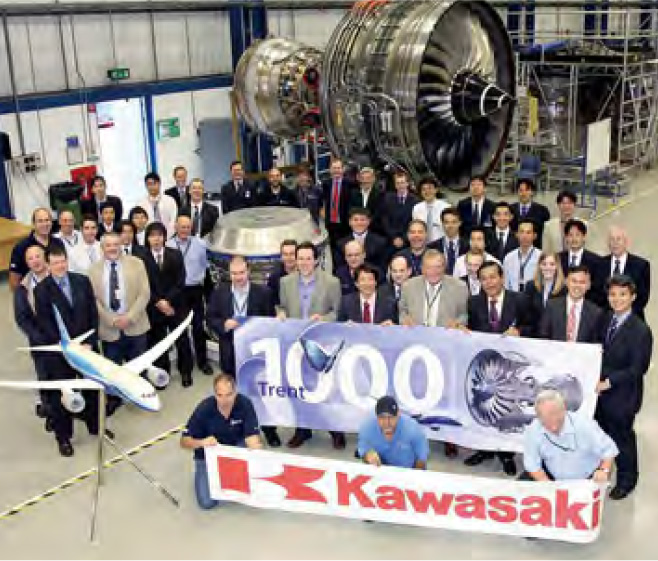
Participation in the development and production of the Trent 1000
-
2005/ Heisei 17
Delivery of the first RTM322 engine (for the MCH-101 helicopter)
-
2008/ Heisei 20
Operational tests start for the Trent 1000 (for the Boeing 787)
-
2009/ Heisei 21
Reaching of RRSP agreement for participation with the Trent XWB project (for the Airbus A350XWB)
-
2010/ Heisei 22
First delivery of new aerospace traction drive T-IDG® for P-1 production aircraft
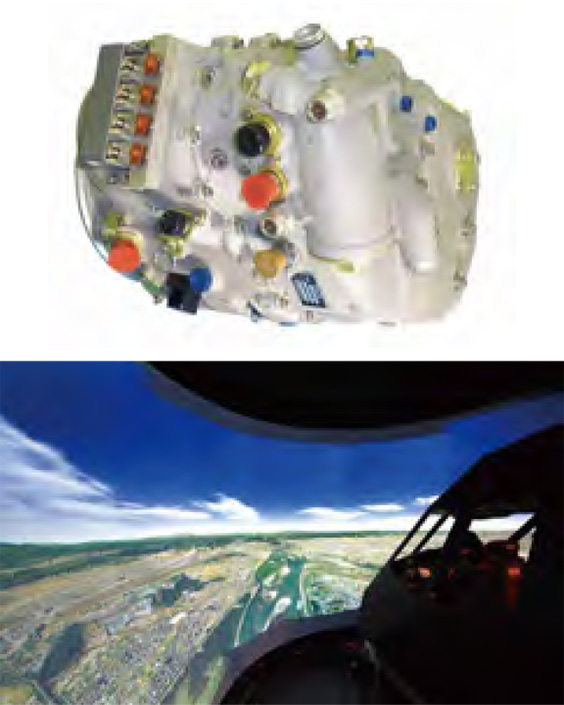
T-IDG®
-
2011/ Heisei 23
First delivery of Trent XWB engine intermediate pressure compressor modules
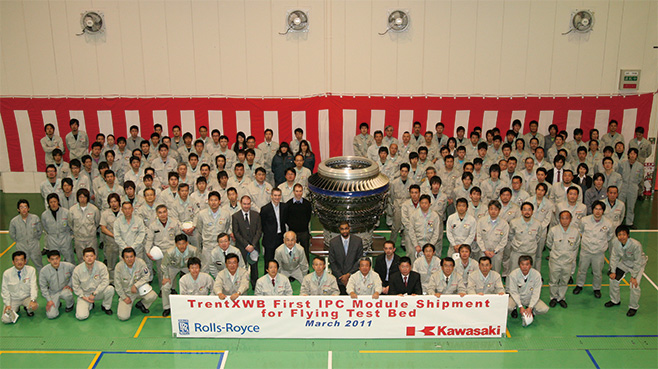
Trent XWB first shipping
-
2011/ Heisei 23
Participation in development and production of PW1100G-JM engine for the Airbus A320neo
-
2013/ Heisei 25
Reaching of RRSP agreement for participation with the Trent 1000-TEN (for the Boeing 787) and Trent XWB (for the Airbus A350) projects
-
2014/ Heisei 26
Reaching of RRSP agreement for participation with the PW1500G/PW1900G engine projects for next-generation regional jets
-
2015/ Heisei 27
Reaching of RRSP agreement for participation with the Trent 7000 project (for the Airbus A330neo)
-
2017/ Heisei 29
First delivery of combustor for mass production of PW1500G engines for next-generation regional jets
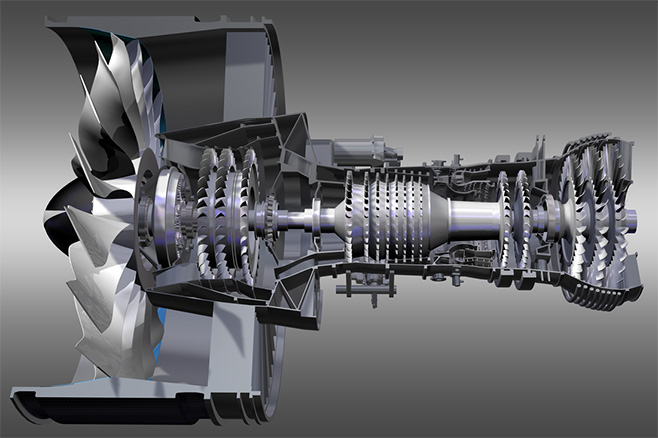
“PW1500G Turbofan engine”
© 2024 RTX Corporation, Pratt & Whitney division. Reproduced with permission. -
2019/ Heisei 31
Achieved a total of 2,000 intermediate pressure compressor modules produced for Trent series
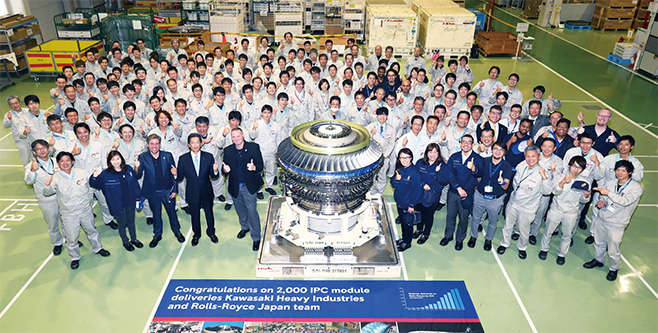
Commemorative ceremony at Seishin Works on November 26, 2019
-
2019/ Reiwa 1
First delivery of Fan Drive Gear System for PW1500G engines for regional jets by Pratt & Whitney
By using this gear system, the PW1500G achieves a high bypass ratio allowing it to have 16% fuel burn improvement, 75% noise reduction, and significantly lower CO2 and NOx emissions compared with traditional aircraft engines.
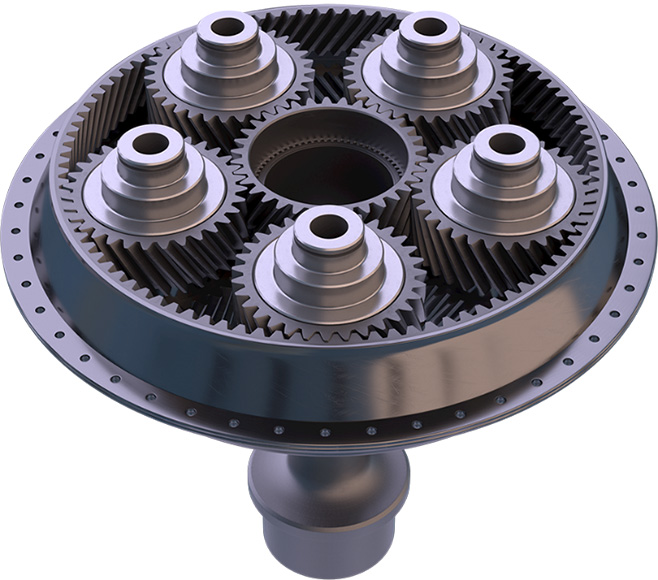
“Fan Drive Gear System (FDGS)”
© 2024 RTX Corporation, Pratt & Whitney division. Reproduced with permission. -
2023/ Reiwa 5
Becoming a voting member of Nadcap® accreditation program in commercial aircraft sector
Nadcap is a global special process accreditation system in the commercial aircraft sector. We were approved to register and join as a voting member for setting accreditation rules and standards. This recognizes our company as an aircraft and engine manufacturer that is highly trusted on a global scale. Our company is the second in Japan to achieve this.